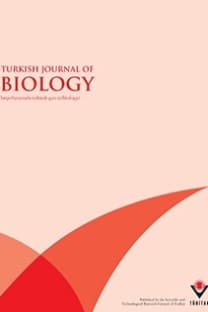Identification of proteins differentially accumulated in Enterococcus faecalis under acrylamide exposure
Enterococcus faecalis, acrylamide, biodegradation, proteomics, genome sequencing,
- ISSN: 1300-0152
- Yayın Aralığı: Yılda 6 Sayı
- Yayıncı: TÜBİTAK
Nur Ain Izzati ZAINUDIN MOHD, Farah Aqila HAMZAH, Nor Azizah KUSAI, Nur Syuhada ZAMBRI, Suhaida SALLEH
İmge KUNTER, Emine KANDEMİŞ, Hani ALOTAİBİ, Tülay CANDA, Şerife Esra Erdal BAĞRIYANIK
Arzu ORAL YILMAZTEPE, Mehmet SARIMAHMUT, Engin ULUKAYA, Haluk Barbaros ORAL, Güven ÖZKAYA, Şeniz KORKMAZ, Buse CEVATEMRE
Th1 cells in cancer-associated inflammation
Güneş AKBULUT DİNÇ, Güneş ESENDAĞLI, Didem ÖZKAZANÇ
Vu Thanh Thanh NGUYEN, Van Son LE, Hoang Mau CHU, Thi Xuan Thuy VI, Hoang Duc LE
Elaiya Raja SUBRAMANIAN, Dineshkumar SUDALAIMANI, Johnson Retnaraj Samuel Selvan CHRISTYRAJ, Kalidas Raaoorthy M, Nino Gopi D, JACKSON DURAIRAJ SELVAN CHRISTYRAJ, KASIMANI RENGANATHAN, SUNDAR KRISHNAN, SUDHAKAR SIVASUBRAMANIAM
Nursen ÇORUH, Nizamettin ÖZDOĞAN
Cryopreservation of citrus seed via dehydration followed by immersion in liquid nitrogen
Muammer CEYLAN, Ergun KAYA, Emel GÖKDOĞAN YILMAZ, Fernanda Vidigal Duerte SOUZA, Maria M. JENDEREK
EDYTA WOJTAS, ANDRZEJ ZACHWIEJA, ANNA ZWYRZYKOWSKA, ROBERT KUPCZYNSKI, KRZYSZTOF MARYCZ
Nur Ain İzzati Mohd ZAINUDIN, Farah Aqila HAMZAH, Nor Azizah KUSAI, Nur Syuhada ZAMBRI, Suhaida SALLEH
